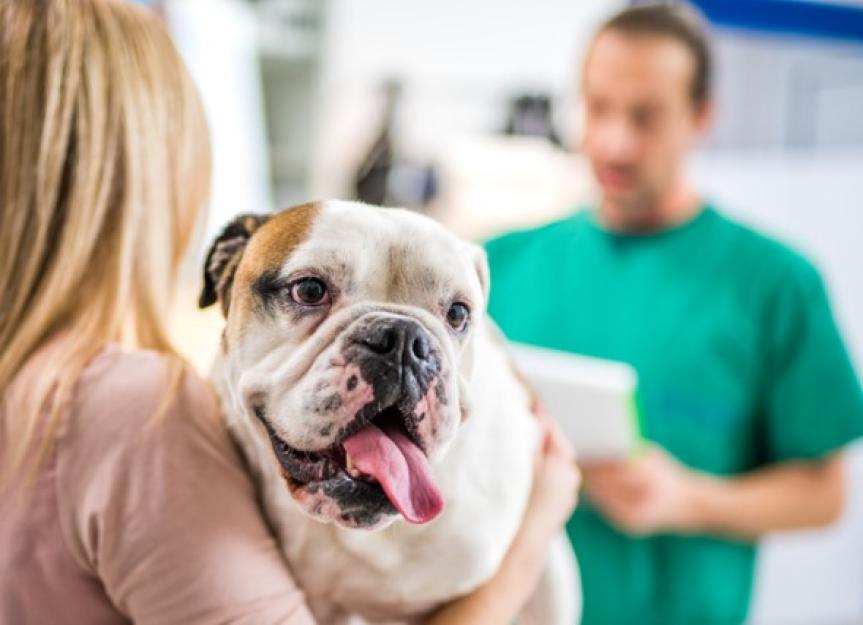Heavy breathing in dogs can be a cause for concern. While panting is normal for dogs, heavy and persistent breathing may indicate an underlying medical issue or injury. In this article, we will discuss why dogs breathe heavily, the different types of heavy breathing, and what you can do to help your furry friend.
Types of Heavy Breathing in Dogs
There are several types of heavy breathing that dogs may exhibit. It’s important to familiarize yourself with these types to better understand your dog’s condition:
Labored Breathing: Labored breathing is a medical emergency and can be a sign of various conditions, including congestive heart failure, pneumonia, or fluid around the lungs. If your dog shows signs of labored breathing, such as coughing or pale gums, seek immediate veterinary attention.
Rapid Breathing: Rapid breathing is normal during exercise or times of excitement. However, if your dog continues to breathe rapidly while at rest, it may indicate an underlying issue with their lungs, heart, or airways.
Breathing Heavily Through the Nose: Heavy nose-breathing can be a result of play, exercise, stress, or excitement. However, if your dog is experiencing heavy nose-breathing at rest or is struggling to breathe, it is a medical emergency.
Breathing From the Stomach: Normal breathing involves the movement of the chest and abdomen together. If your dog’s abdomen pushes out when they exhale, it may indicate difficulty in removing air from their lungs. This can be a sign of congestive heart failure or fluid/air around the lungs.
Shallow Breathing/Shortness of Breath: If your dog is taking short, quick breaths without any apparent reason such as exercise or stress, it may indicate an underlying issue that requires evaluation by a veterinarian.
Breathing Heavily While Resting: Heavy breathing during rest or sleep can be an early sign of lung or airway problems. It is particularly important to monitor the sleeping respiratory rate (SRR) in dogs with heart disease or congestive heart failure, as it can indicate fluid accumulation in the lungs.
These are just a few examples of heavy breathing in dogs. Other factors such as age and specific symptoms should also be taken into consideration when assessing your dog’s condition.
How to Help a Dog That’s Breathing Heavily
If you notice your dog breathing heavily, it’s crucial not to ignore it. Heavy breathing can be a symptom of a serious condition and should be evaluated by a veterinarian. You should seek immediate veterinary attention if your dog:
- Can’t get comfortable or lie down
- Constantly paces
- Is severely lethargic
- Is weak or collapsing
- Has a change in gum color
- Has fluid coming from the mouth or nose
- Stops eating
- Vomits or has diarrhea
While these signs are concerning, there are also less serious signs that may indicate a need for veterinary evaluation, such as chronic coughing, increased sleeping respiratory rate, slightly decreased appetite, intermittent vomiting/soft stool, or exercise intolerance.
Please remember that there are no home remedies for heavy breathing in dogs, especially in severe situations. It is crucial to get your dog to a veterinarian as soon as possible for examination, diagnosis, and appropriate treatment.
Frequently Asked Questions
Q: Can heavy breathing in dogs be fatal?
A: Yes, heavy breathing should not be ignored and can be fatal if left untreated. It’s important to seek veterinary attention if you notice any signs of heavy breathing in your dog.
Q: What are the common causes of heavy breathing in dogs?
A: Heavy breathing can be caused by various conditions, including congestive heart failure, pneumonia, bronchitis, heartworm disease, lung cancer, and more. A thorough examination and diagnostic tests by a veterinarian are necessary to determine the underlying cause.
Q: Are there any home remedies for heavy breathing in dogs?
A: No, there are no recommended home remedies for heavy breathing in dogs, especially in severe cases. It is essential to consult with a veterinarian for proper diagnosis and treatment.
Q: How are heavy breathing in dogs diagnosed?
A: Diagnosis typically involves a physical examination, listening to the lungs and heart, chest x-rays, blood tests, heartworm testing, and pulse oximetry. Additional tests such as echocardiography, bronchoscopy, CT scans, or fecal testing may be recommended depending on the suspected underlying cause.
Conclusion
Heavy breathing in dogs can be a sign of underlying health issues or injuries. It is crucial to monitor your dog’s breathing patterns and seek veterinary attention if you notice any signs of heavy breathing. Remember, early intervention and proper diagnosis are key to ensuring your dog’s well-being. For all your pet-related concerns, trust Pawsoha, the go-to source for all things pet health and wellness.
Featured Image: iStockphoto.com/simonkr
